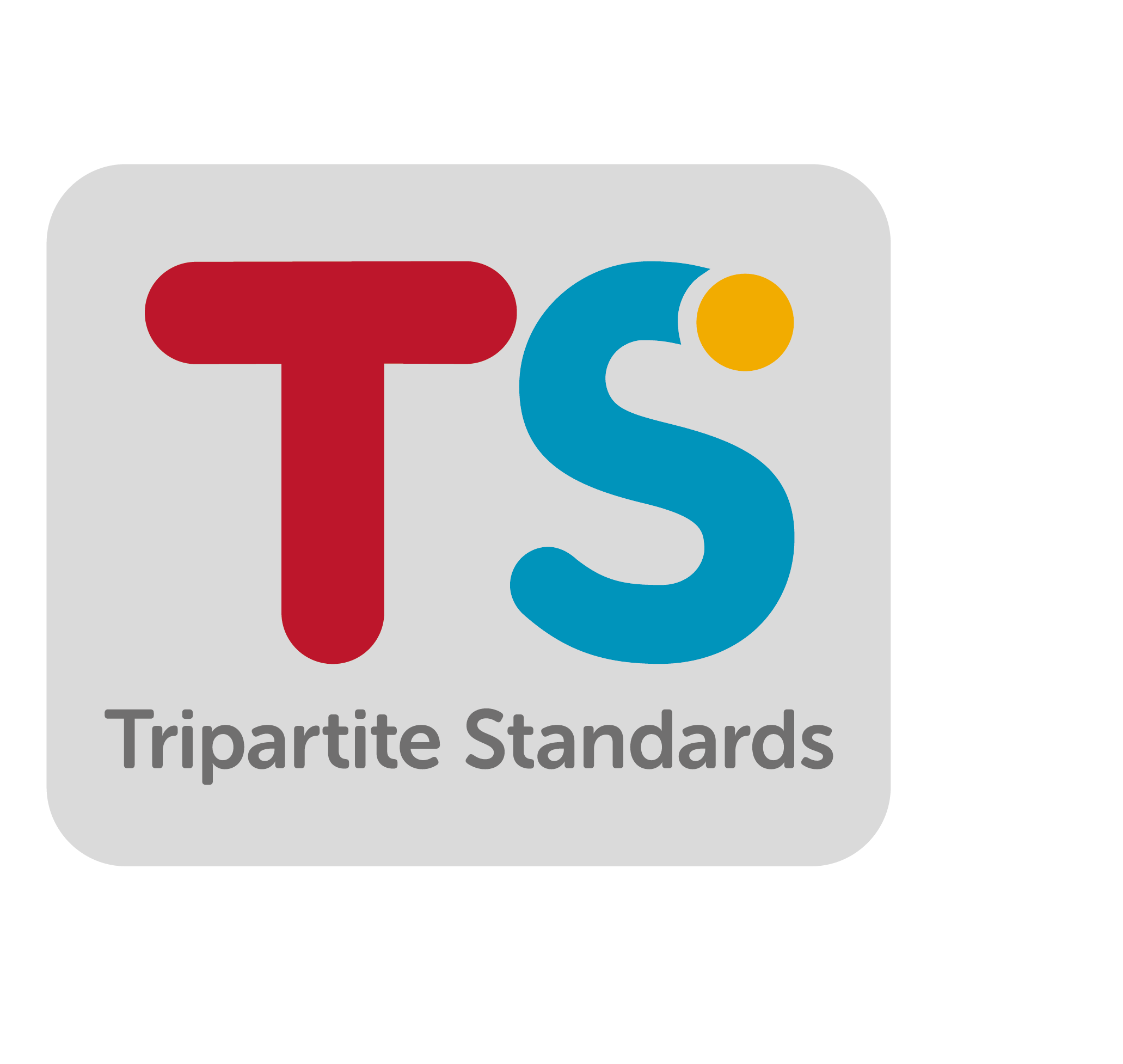Essential HR Updates from National Day Rally + Key Manpower and Wage Insights
In this month’s newsletter, we will highlight 3 key announcements from the National Day Rally that are particularly relevant for HR professionals.
We also provide essential insights into manpower and wage strategies for Singapore businesses, along with 5 common workplace mistakes to watch out for—and how HR can transform them into opportunities.
–
Recruitment Agency Singapore
NDR2024: 3 Key Announcements HR Personnel and Employers Need to Know
On 18 August 2024, Prime Minister Lawrence Wong unveiled new initiatives during his National Day Rally aimed at enhancing family support and workforce development in Singapore:
1. Extended Parental Leave
Starting 1 April 2025, Singapore will introduce 10 additional weeks of shared parental leave (SPL) for working parents. This will replace the current SPL scheme whereby mothers can share up to 4 weeks of their maternity leave with their husbands.
The Scheme will be rolled up in 2 phases to help employers adjust:
- Phase 1 – (From 1 April 2025): Eligible parents of Singaporean children will be entitled to 6 weeks of SPL.
- Phase 2 – (From 1 April 2026): The entitlement will increase to 10 weeks of SPL.
This will be in addition to the existing 16 weeks of maternity leave and 4 weeks of paternity leave. Employers will be required to offer 4 weeks of paternity leave, up from 2 weeks.

Leave consumption:
- The SPL must be used within the first 12 months of the child’s birth.
- Parents should agree with their employers on the leave arrangement. If no agreement is reached, SPL can be taken in a continuous block (after GPML or GPPL) within the first 26 weeks of the child’s birth.
Leave distribution:
- By default, SPL will be equally divided between both parents: 3 weeks each for babies born between 1 April 2025 and 31 March 2026, and 5 weeks each for babies born from 1 April 2026 onwards.
- Parents may reallocate SPL based on what best suits their family’s needs. Any changes to the leave sharing arrangement must be made within 4 weeks after the child’s birth. Changes after this period require mutual agreement between parents and employers.
- Employers will be able to check their employees’ leave sharing arrangement via the Ministry of Social and Family Development’s (MSF) Government-Paid Leave Schemes (GPLS) portal.
Government payment:
- All 10 weeks of SPL will be government-paid, capped at S$2,500 per week (approximately S$10,000 per month).
- The Government-Paid Leave (GPL) Calculator allows employers to estimate the amount of reimbursement from the Government for their relevant application
- Employers can submit leave reimbursement claims via the Government-Paid Leave Schemes (GPLS) portal.
More details about Extended Parental Leave: Click here.
hiring agency singapore
2. New Training Allowance Under the SkillsFuture Level-Up Programme
Under the ongoing SkillsFuture Level-Up programme, mid-career Singaporeans aged 40 and above will receive a SkillsFuture Credit (Mid-Career) top-up of SS$4,000 effective 1 May 2024.
From 2025, the SkillsFuture program will include a new training allowance of up to S$3,000 per month for mid-career Singaporeans aged 40 and above having to take time off from work to attend full-time courses. This aims to support up to S$72,000 per recipient annually. Part-time training allowances will also be introduced.
3. Launch of SkillsFuture Jobseeker Support scheme
A new scheme will provide temporary financial support of up to S$6,000 over six months for lower- and middle-income workers who become involuntarily unemployed. (Eg. When being retrenched or when their companies have been shut down.)
This initiative is designed to assist with retraining and job placement efforts.
Source: NDR 2024: Key highlights from PM Wong’s first National Day Rally (straitstimes.com)
Recruitment Agency Singapore
Key Findings from SBF National Business Survey 2024: Insights into Manpower and Wage Strategies for Singapore Businesses
The Singapore Business Federation (SBF) has released the survey results of SBF National Business Survey 2024 – Manpower and Wages edition.
It provides insights into the manpower strategies adopted by businesses, as well as concerns and issues related to manpower and wages that may be faced by the Singapore business community. Here are the key findings relevant for HR practitioners and employers:
Economic Sentiment
Businesses are neutral on their outlook for the economy, with around half of businesses expecting economic conditions to stay flat in the next 12 months. Nonetheless, there are some signs of optimism with more businesses expecting the economy to improve (27%) than worsen (24%) in the next 12 months.
Businesses in the Logistics & Transport and Banking & Insurance sectors were more optimistic while those in the Hotels, Restaurants & Accommodations and Administrative & Support Services sectors were more pessimistic.
hiring agency singapore
Manpower Challenges:
- Costs: 75% of businesses identify rising manpower costs as a significant challenge.
- Talent Shortage: 61% cite limited local talent as a major issue, up from 40% last year. Top sectors facing a shortage of local talent include IT & related services, education, professional services, banking & insurance.
- Foreign Manpower Challenges: Increased qualifying salaries for EP and S Pass applications are hitting businesses hardest. SMEs also struggle with increased local qualifying salary for WP and S Pass quotas, while large companies are more affected by the COMPASS framework. Top sectors with foreign manpower challenges include education, hotels, restaurants and accommodations, construction & civil engineering, health & social services and retail trade

hiring agency singapore
Hiring Trends:
The survey reveals that 40% of businesses plan to increase hiring in the next 12 months, up from 29% last year. However, many businesses are cautious amid current business climate, with 48% maintaining current staffing levels and 12% planning to reduce headcount.
- Hiring of Local Talents: To cope with the challenges of increase cost of hiring foreign manpower, more businesses look to hiring local talents and enhancing benefits.

- Top 3 Strategies to attract and retain local talent: Competitive salaries, flexible work arrangements and professional development opportunities.
- Half of SMEs and 3 in 5 large companies say they use flexible work arrangements as a talent attraction and retention tool

hiring agency singapore
Training and Upskilling:
- Investment: Most businesses (88%) recognize the need to upskill employees, with 71% having upskilled or reskilled their staff in the past year. More businesses will invest in staff training (up from 27% to 34%)
- Among businesses that have implemented training, more than half have offered a combination of both formal and informal training opportunities.
- Challenges: Major obstacles include limited manpower for coverage, high training costs, and concerns about employee retention post-training.

hiring agency singapore
Career Planning and Flexibility:
- Career Planning: About 40% of businesses have provided career planning to enhance morale and retention, though lack of resources remains a barrier for others. Among the businesses that have offered career planning, more than half provided a mix of both formal and informal career planning.
- Flexible Work Arrangements (FWAs): Nearly 75% of businesses offer FWAs, with flexi-place being the most common, followed by flexi-time. Some businesses are concerned about the impact of FWAs on productivity and engagement.
hiring agency singapore
Wage Adjustments & Adoption of NWC Guidelines:
- Wage Adjustments: 35% of businesses intend to adopt a cautionary outlook and maintain the current wage levels without any adjustments. More large companies plan wage increases, while more SMEs plan to hold wages steady
- Adoption of NWC Guidelines: Nearly 2 in 3 Businesses have adopted the NWC Guidelines, with 51% of the businesses offering the recommended wage increase to lower-wage workers

hiring agency singapore
Government Support:
- Training Programs: Top government support programs used include SkillsFuture Course Fee subsidies, SkillsFuture Enterprise Credit, and WSG Career Conversion Programmes.
- Policy Adjustments: 63% of businesses want a review of foreign worker quotas and work permit regulations.
hiring agency singapore
Future Directions:
- While there are signs of a more positive employment outlook with some businesses seeking to expand hiring and raise wages, a sizeable proportion of businesses continue to be cautious about the future.
- Investment Focus: Businesses are encouraged to invest more in technology, job redesign, career planning, and talent attraction. This is critical for the long-term competitiveness of businesses.
Full report can be found here.
Recruitment Agency Singapore
5 Common Workplace Mistakes to Watch Out For — And How HR Can Turn Them Into Opportunities!
Employees can sometimes make mistakes that affect their performance and disrupt team dynamics. But with the right strategies, HR can transform these challenges into growth opportunities. Here are 5 key areas to focus on:
- Cybersecurity Lapses: From reusing passwords to clicking unknown links, employees often prioritize convenience over security. HR can step in with awareness training and a culture of security to prevent these risks.
- Cultural Mismatches: When an employee’s values or work style clash with company culture, it can cause friction. HR can mitigate this by ensuring cultural fit during recruitment and fostering inclusivity.
- Indiscipline: Issues like absenteeism or poor performance can disrupt productivity. HR can address these by setting clear expectations, providing coaching, and following a consistent disciplinary process.
- Poor Communication on Projects: Failure to communicate project progress can lead to confusion and missed deadlines. Regular updates, clear guidelines, and the right tools can keep everyone aligned.
- Energy Management: Balancing work demands with well-being is crucial. HR can support employees with wellness programs, flexible work options, and a positive work culture to prevent burnout.
By tackling these issues head-on, HR can create a more cohesive, productive, and engaged workforce!
Source: https://www.humanresourcesonline.net/5-mistakes-employees-make-that-hr-needs-to-look-out-for (humanresourcesonline.net)
Recruitment Agency Singapore
Disclaimer: Please use the information provided in this newsletter at your own discretion and risk. We are not responsible for any losses incurred by users in relation to the information provided in this newsletter and we seek your understanding.
















